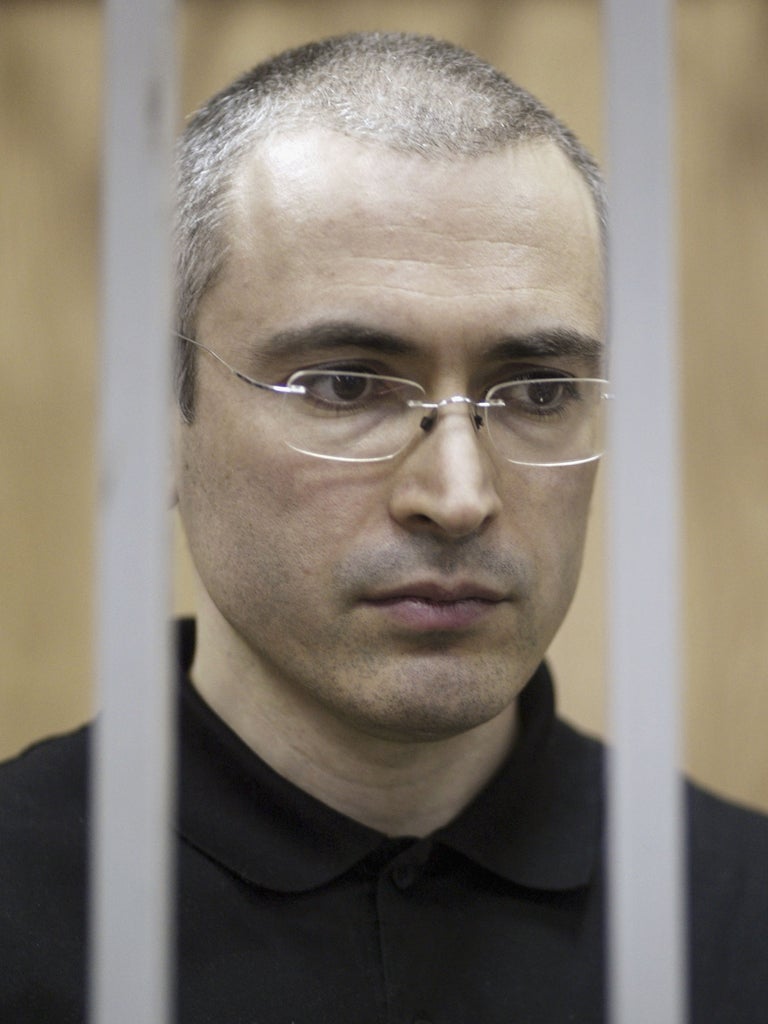Poignant pen from prison cell of Russian oligarch
Khodorkovsky's son says smuggled writings reveal a changed man

Your support helps us to tell the story
From reproductive rights to climate change to Big Tech, The Independent is on the ground when the story is developing. Whether it's investigating the financials of Elon Musk's pro-Trump PAC or producing our latest documentary, 'The A Word', which shines a light on the American women fighting for reproductive rights, we know how important it is to parse out the facts from the messaging.
At such a critical moment in US history, we need reporters on the ground. Your donation allows us to keep sending journalists to speak to both sides of the story.
The Independent is trusted by Americans across the entire political spectrum. And unlike many other quality news outlets, we choose not to lock Americans out of our reporting and analysis with paywalls. We believe quality journalism should be available to everyone, paid for by those who can afford it.
Your support makes all the difference.Eight years ago today, Mikhail Khodorkovsky was arrested on the tarmac at a Siberian airport. Since then, he has been behind bars and has undergone an extraordinary transformation from a ruthless businessman and the richest man in Russia, to a pensive prisoner smuggling out handwritten literary sketches of life behind bars.
Sentenced to eight years in jail for money laundering and fraud, Khodorkovsky would have been released today were it not for a second trial that concluded last year and extended his sentence until 2016. Khodorkovsky's son Pavel, who lives in New York, told The Independent yesterday that he believed that Prime Minister Vladimir Putin, who recently announced that he will return to the Kremlin next year, holds a personal grudge against his father.
"Until the second verdict we were looking forward to this day, the whole family couldn't wait for this day," said Pavel Khodorkovsky. "But Putin is really intent on keeping my father in jail for as long as he's in power."
Khodorkovsky is following a long tradition of Russian exiles, prisoners and camp inmates by putting pen to paper. He has written lengthy exchanges with contemporary Russian authors and has penned opinion pieces on the state of Russian politics for leading newspapers. Recently, however, his writings have taken a more colourful turn, writing a series called "Prison Folk" for the weekly magazine The New Times. His style is matter-of-fact, laced with a light irony and moments of compassion.
"After so many years in prison, I'm certainly not going to idealise the people I meet here," wrote Russia's most famous prisoner in one of the columns. "But many of the inmates do have principles." Khodorkovsky writes about a young prisoner called Kolya, behind bars for drugs-related offences. The police, keen to up their quota of solved crimes, suggest that he admits to another crime he didn't commit. Kolya agrees on condition that he can choose to serve his time in a prison near to his family. However, when they tell him he has to admit to robbing an old lady, he refuses and ends up harming himself in protest.
"I look at this man who has been to prison many times, and think with bitterness about the many people on the outside who sell their honour much more cheaply, and wouldn't think it a crime at all to take a couple of thousand roubles off an old woman, but would cover their crime with clever words," Khodorkovsky wrote. "I can't help but be proud of Kolya."
The jailed businessman's son says the columns show how much his father has changed in prison. "He has gone from a pragmatic, efficient businessman who only judges people on the work they do to being a much softer, more compassionate person," he said.
Join our commenting forum
Join thought-provoking conversations, follow other Independent readers and see their replies
Comments